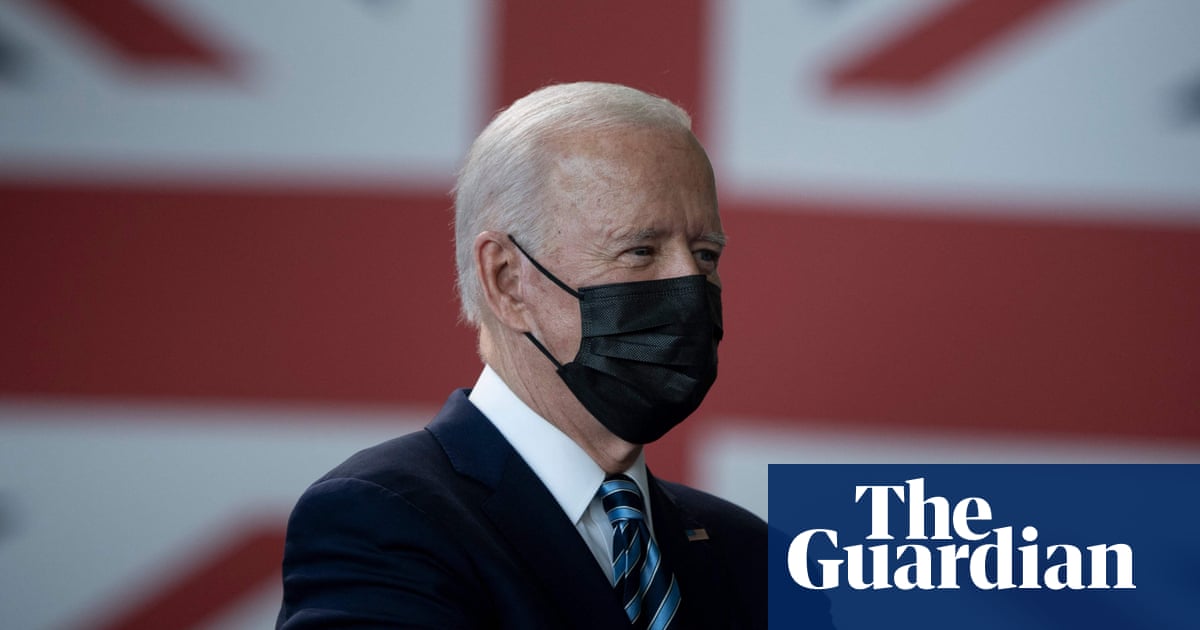G7 leaders will call for fresh WHO inquiry into Covid origins, leaked communique suggests
Leaders at the G7 summit will call for a new, transparent investigation by the World Health Organization into the origins of the coronavirus, according to a leaked draft communique for the meeting.
The call was initiated by Joe Biden’s administration and follows the US president’s surprise decision to expand an investigation by the country’s intelligence agencies into the origins of the pandemic.
A draft communique, first seen by Bloomberg News, calls “for progress on a transparent, evidence-based, and expert-led WHO-convened phase 2 study on the origins of Covid-19, that is free from interference”.
The broad consensus among scientific experts remains that the most likely explanation is that Covid-19 jumped to humans from an animal host in a natural event. An on-the-ground investigation by WHO experts earlier this year concluded it was “extremely unlikely” the pandemic began in a laboratory.
However, some within intelligence circles have continued to push the theory that the virus escaped from the Wuhan Institute of Virology. Last month, in announcing his inquiry, Biden said two elements of the US intelligence community believed the virus had a natural origin while a third leaned towards a lab leak.
The prevailing view among British intelligence agencies is that Covid-19 has an animal origin, although an accidental lab leak has never absolutely been ruled out. Researchers at the Wuhan lab would have been acutely aware that any leak would be particularly dangerous to the local population, sources argue.
A US intelligence report leaked to the Wall Street Journal last month suggested that three staff members at the WIV lab were treated in hospital with an illness in November 2019, a month before the first cases were officially detected in Wuhan.
But other intelligence sources pointed to an Italian study by the Milan National Cancer Institute, which suggested that some patients may have been infected with Covid-19 in September 2019 – two months previously.
Some blood samples taken from patients enrolled in a screening trial showed antibodies first appearing in October, prompting the trial authors to suggest that the disease was silently circulating a month earlier.
Any further focus on a potential lab leak by the G7 will irritate Beijing, which has repeatedly rejected the theory and denied that members of staff were taken ill. The theory was pushed hard when Donald Trump was US president, making Biden’s decision to return to it all the more surprising.
Last month China’s foreign ministry accused the US of “turning a blind eye to facts, science” in response to the Biden’s fresh inquiry and accused the country’s intelligence of having a “notorious track record”, citing the run-up to the Iraq war in 2003.
But there are growing number in the intelligence community who believe a fresh attempt at an inquiry would help clear the air. In March a group of scientists argued the initial WHO inquiry was not properly independent of China.
The G7 will also commit to providing 1bn extra doses of the Covid-19 vaccine over the next year to accelerate global protection against the disease.
This may disappoint aid agencies that want most of the world’s 8 billion people to be vaccinated, but the communique will argue that the fresh commitment will dramatically increase the number of people in the developing world offered a vaccine.
Before his arrival at the summit, Biden said the US would commit to buying 500m doses of the vaccine for distribution to developing countries.
The communique, is expected to be finalised on Sunday after a three-day meeting in Cornwall. According to the Bloomberg report, this year’s communique will contain a promise to tackle forced labour in global supply chains, including in the solar and garment sectors and where it involves the forced labour of minorities.
In another clear swipe at China’s leadership, the commitment also forces EU leaders, the US, Canada, Japan and the UK to take action against Beijing following the ill treatment of Uyghur Muslims in Xinjiang.
It will include a promise to end unnecessary trade restrictions on vaccine exports along with commitments to shift to zero-emissions vehicles and a promise of new funding to tackle the climate emergency, while also emphasising the need to ensure the long-term sustainability of public finances once the recovery is firmly established.
It is understood there will be a call for Russia to tackle groups within its borders that conduct ransomware attacks, use virtual currencies to launder ransoms, and carry out other cybercrimes.













